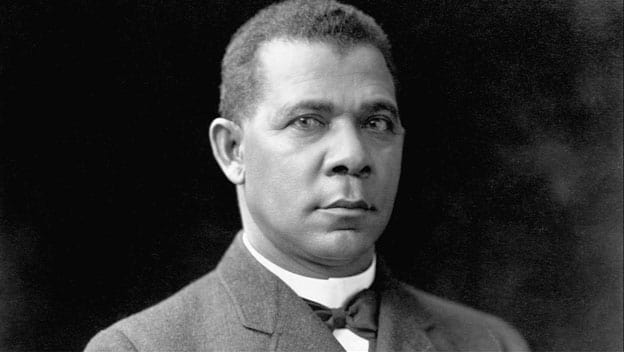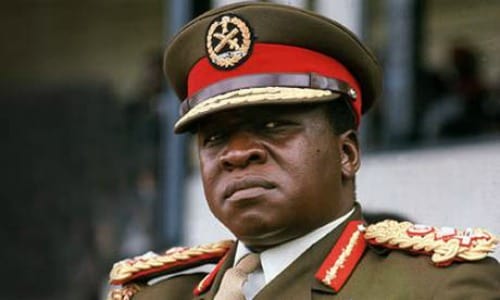Booker T. Washington (pictured) was a celebrated African-American figure in the late 1800s, often portrayed as a champion of equality for Black Americans and civil rights. On this day in 1895, however, Washington made a controversial and, according to some, weak-willed appeal to Southern Blacks in what would become known as the “Atlanta Compromise.”
SEE ALSO: Ugandan Exiles Attempted Idi Amin Coup On This Day In 1972
At the Atlanta Cotton States and International Exposition, Washington addressed a group of mostly White individuals in the southern Georgia city. The speech has been hailed by some as a significant moment in American history, laying the foundation for the Compromise to take place between conservative Black and White leaders.
A third of Blacks made up the South’s population, and Washington called on that group to join the workforce in a bid to improve soured race relations in the region. Washington championed Blacks to learn a vocational trade as a way to lift themselves out of oppression and to also promise to remain solely with their race.
This appealed to both the northern and southern Whites in the audience, as it meant that the aims of segregation and equality promoted by a growing number of Blacks would be possibly silenced.
From the speech:
Casting down your bucket among my people, helping and encouraging them as you are doing on these grounds, and to education of head, hand, and heart, you will find that they will buy your surplus land, make blossom the waste places in your fields, and run your factories.
While doing this, you can be sure in the future, as in the past, that you and your families will be surrounded by the most patient, faithful, law-abiding, and unresentful people that the world has seen.
As we have proved our loyalty to you in the past, in nursing your children, watching by the sick-bed of your mothers and fathers, and often following them with tear-dimmed eyes to their graves, so in the future, in our humble way, we shall stand by you with a devotion that no foreigner can approach, ready to lay down our lives, if need be, in defense of yours, interlacing our industrial, commercial, civil, and religious life with yours in a way that shall make the interests of both races one.
In all things that are purely social we can be as separate as the fingers, yet one as the hand in all things essential to mutual progress.
…
The wisest among my race understand that the agitation of questions of social equality is the extremest folly, and that progress in the enjoyment of all the privileges that will come to us must be the result of severe and constant struggle rather than of artificial forcing.
No race that has anything to contribute to the markets of the world is long in any degree ostracized. It is important and right that all privileges of the law be ours, but it is vastly more important that we be prepared for the exercise of these privileges. The opportunity to earn a dollar in a factory just now is worth infinitely more than the opportunity to spend a dollar in an opera-house.
Not surprisingly, the analysis of the speech is divided, with some stating that Washington wisely appealed to the wants of Whites while hopefully giving Blacks a chance to find a measure of imbalanced but protected prosperity.
However, others, such as civil rights activist and historian W.E.B. Du Bois, called this burgeoning agreement between Black and White leaders a “compromise,” and indeed the words ring as a callow attempt to accept the injustices from the oppressor.
Du Bois and others from his Talented Tenth group wanted Blacks to join the fight for civil and equal rights rather than lay down their arms and continue the status quo.
Naturally, this pitted the two great leaders against one another. When Washington died in 1915, a greater charge for Black equality was sparked, thus planting the seeds for the Civil Rights Movement of the 1950s and 60s.
SEE ALSO: Okeechobee Hurricane Disaster Occurred On This Day In 1928










